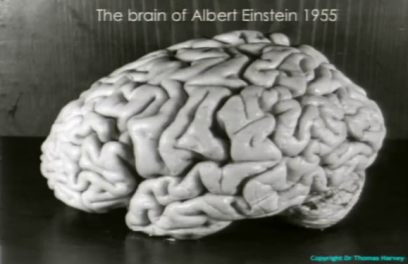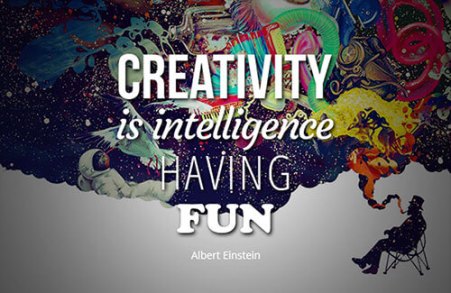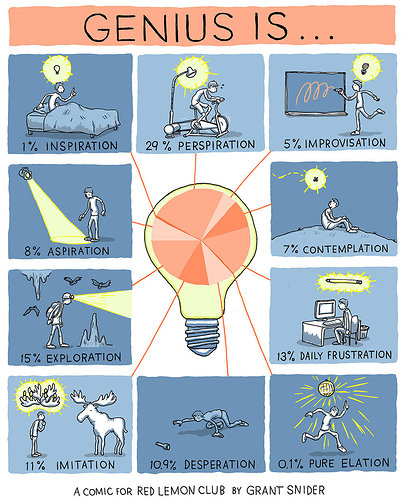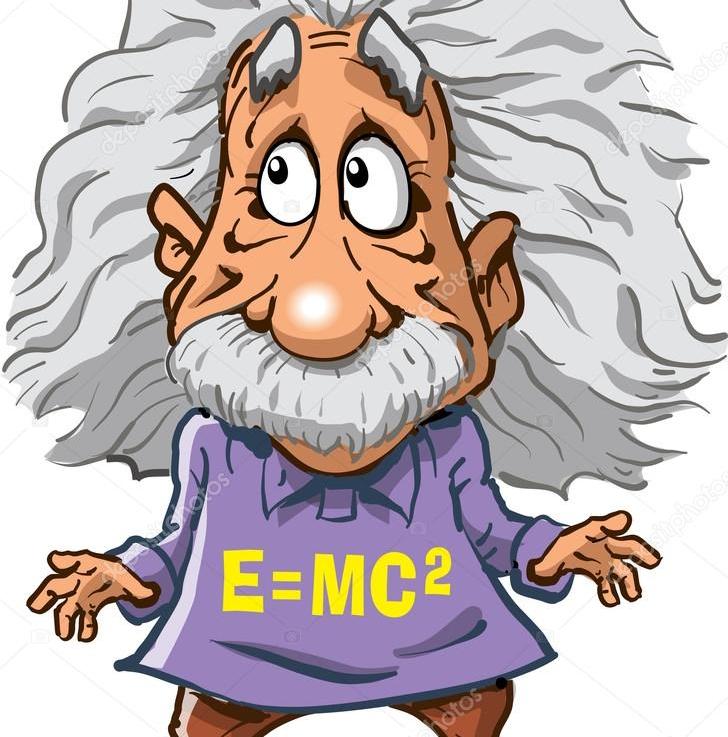What do Einstein, Darwin, Mozart, Picasso, and da Vinci have in common? Many people have attempted to find an answer. They have gathered data about the smartest people alive and tried to find recurring patterns that indicate certain traits characteristic of a genius.
In this post, I’ll tell you about some of these traits. However, keep in mind: the word ‘genius’ is a subjective term, having a different meaning for each person. But who knows? Maybe the next Einstein is reading this, and this acts as the catalyst for his/her meteoric path to fame…
IQ is what comes to mind (haha, ‘comes to mind’, get it?) first when you think of a genius. The brain is very important in determining IQ (well, duh). Scientists have found evidence that the amount of gray matter that surrounds the cerebral cortex has a large impact on intelligence. This is true in the case of Albert Einstein.

Research has also shown that the development and physical state of the Brain are more important than the size of the brain. People with brains that thicken faster than those of others have higher IQs. Also, because the physical state of the brain cam be passed down from parents, IQ may be inherited.
According to Howard Gardner and his theory of Multiple Intelligences, there are seven types of intelligences: linguistic, logical-mathematic, musical, bodily-kinesthetic, spatial, intrapersonal, and interpersonal. In order to be a genius, you must be extraordinarily talented in one of these categories. And Robert Sternberg’s Triarchic Theory believes that human intelligence includes creative intelligence, analytical intelligence, and practical intelligence, and a genius has high amounts of each of these. But intelligence is also difficult to quantify and define, and although it is a major part of genius, it is not the only thing.
Creativity is central to genius. With it, geniuses can apply their knowledge to invent something or come up with an idea/theory that revolutionizes the world. Creativity and imagination allow geniuses to do groundbreaking work.

Creativity relates to many things, including latent inhibition and bipolar disorder. Latent inhibition is a feeling that all humans experience, one that causes us to ignore inconsequential stimuli. Geniuses have less latent inhibition than other people. They are also said to have many traits similar to people with bipolar disorder, although scientists have not found a clear relationship yet.
However, when we think of a genius, we often imagine a maverick. We seem to be fixated on this idea that a genius is an amazingly smart, creative, and rebellious loner. That is completely wrong. Studies have shown that most geniuses have a large social circle, and they know many other artists and luminaries. This enables them to share their ideas and become wiser.

Age is another factor that doesn’t contribute to genius. There is no specific age when a person is at their ‘smartest’. Psychologist Dean Simonton says that the two main factors that influence the zenith of a career are the chosen career path and the time of mastery in it.
Good fortune. What do you think? Is that part of what makes a genius? According to research, it is. Many people have amazing potential, but their growth in their field in stunted. This can be for many reasons: poverty, lack of opportunity, lack of connections, etc. Some people, however, manage to triumph over this barrier through sheer luck (take Leo da Vinci, for instance – but look him up yourself).
Well, that’s all I have for now. If I find out more about this fascinating topic, I’ll be sure to add it to this post. In the mean time, I hope all of you are inspired to become geniuses yourselves!

Sources:
-
“How Geniuses Work.” HowStuffWorks. N.p., 01 Sept. 2006. Web. 24 May 2017.
- Robinson, Andrew. “Can We Define Genius?” Psychology Today. Sussex Publishers, 30 Nov. 2010. Web. 25 May 2017.
- Oliver Uberti. CONSULTANT: DEAN KEITH SIMONTON, PROFESSOR EMERITUS, University of California, DAVISSource: Age and Achievement, by Harvey C. Lehman, and Oliver Uberti. Source: DEAN KEITH SIMONTON, PROFESSOR EMERITUS, University of California, DAVISPortrait Photos: Paul D. Stewart, Science Source (Newton); Scala/Art Resource, NY (Michelangelo). “What Makes a Genius?” National Geographic. N.p., 23 May 2017. Web. 25 May 2017.

Your blog is great, i like it soo much that i nominated you for the leibster award!!!
LikeLike